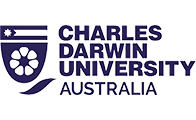Dr Koromvokis Patricia
 Lecturer in Modern Greek Studies – Macquarie University
Lecturer in Modern Greek Studies – Macquarie University
Embracing Bilingualism in Aged Care: Enhancing Greek-Australian Cultural Competency among Carers
Abstract
Bilingualism holds a significant role in the Australian workplace, particularly within community-related services where interactions among individuals speaking different languages are common. This presentation delves into the dynamics of bilingualism within aged care facilities in Sydney, Australia, with a focus on the Greek-Australian community. For residents whose primary language is not English, effective communication and cultural understanding profoundly influence the quality of care they receive, especially evident during the challenges posed by the COVID-19 pandemic. Compounded by the diverse backgrounds of carers, primarily from South Asia and sub-Saharan Africa, bridging the communication gap between staff and residents in bilingual/multilingual nursing homes is paramount.
This presentation outlines the development and execution of an intensive Greek language and culture program implemented in a Sydney-based Greek aged care facility. The program aimed to equip non-Greek-speaking carers with essential oral language skills and cultural awareness necessary for effective communication with Greek-speaking residents, fostering linguistically and culturally inclusive care environments.
Participants engaged in activities focusing on enhancing listening and speaking skills, utilizing authentic workplace dialogues as models. Recognizing the morphological complexities of the Greek language, basic grammatical rules were introduced to facilitate language usage across diverse everyday scenarios.
Post-program survey data analysis revealed a positive reception, indicating satisfaction with the program’s efficacy. This presentation serves to exemplify best practices, emphasizing the importance of community engagement and tangible benefits for both staff and residents within bilingual aged care settings.
Biography
Dr. Patricia Koromvokis, Director of the Modern Greek Studies Program at Macquarie University, Sydney, also leads a prominent examination center for the Certificate of Attainment in Greek. With a focus on innovative teaching methods, she drives various initiatives and research projects to enhance Greek language education. Notably, her 2021 research partnership with a major Greek-Australian aged care facility, funded by the Multicultural Ministry of New South Wales, aims to meet the linguistic and cultural needs of bilingual aged care recipients. Dr. Koromvokis organizes international educational events, including the 7th and 8th International Summer Universities and the “Modern practices in the teaching of Greek as a second/foreign language” online conference in January 2024, in collaboration with prominent institutions. She was a Finalist for the Greek International Women Awards 2023 in Education & Psychology.


